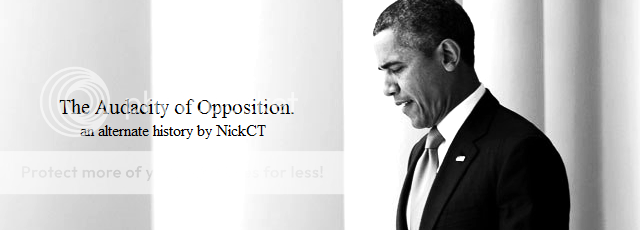The Audacity of Opposition.


On November 4, 2008, the United States made history when it elected Barack Hussein Obama to be the first African-American president of the United States. To become the nation's 44th chief executive, Barack Obama was forced to navigate a difficult primary campaign against Senator Hillary Rodham Clinton - the woman most had assumed would be the Democratic nominee that year. A surge of grassroots support and optimism launched Barack Obama to the nomination and eventually the White House. Since then, President Obama has had a mixed record. He has achieved significant health care reform and ended the Wars in Iraq and Afghanistan. However, conservatives attack the president for supporting too large a government, and liberals attack the president for failing to fulfill all of his campaign promises. What is to follow is an alternate history of the Obama Administration, rooted in a relatively small initial point of divergence, but as the radically different Obama Administration unfolds, that initial point of divergence becomes a critical error that could bring down the presidency of Barack Obama. Our 44th President has written of the audacity of hope, but what if he was faced with the audacity of opposition?